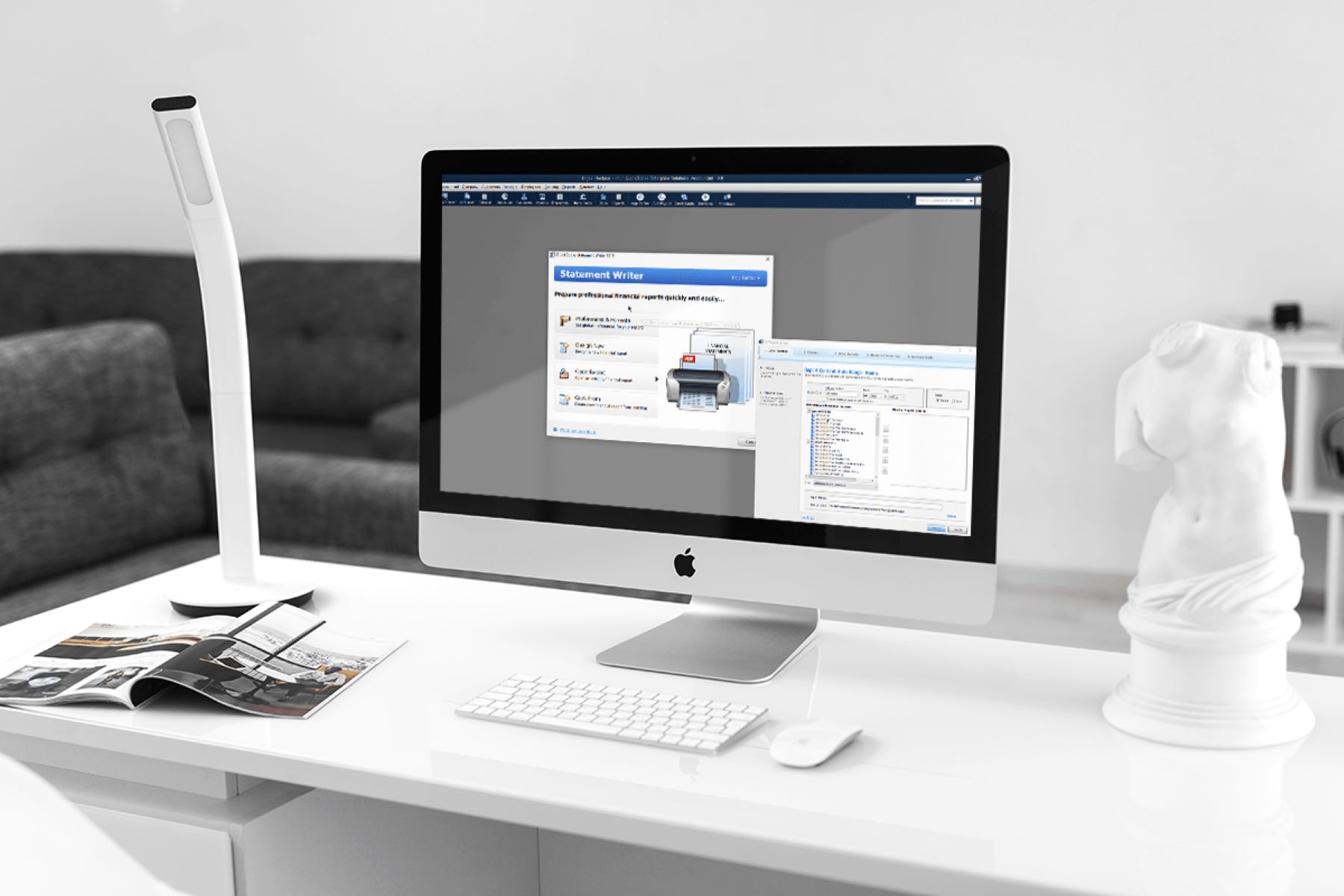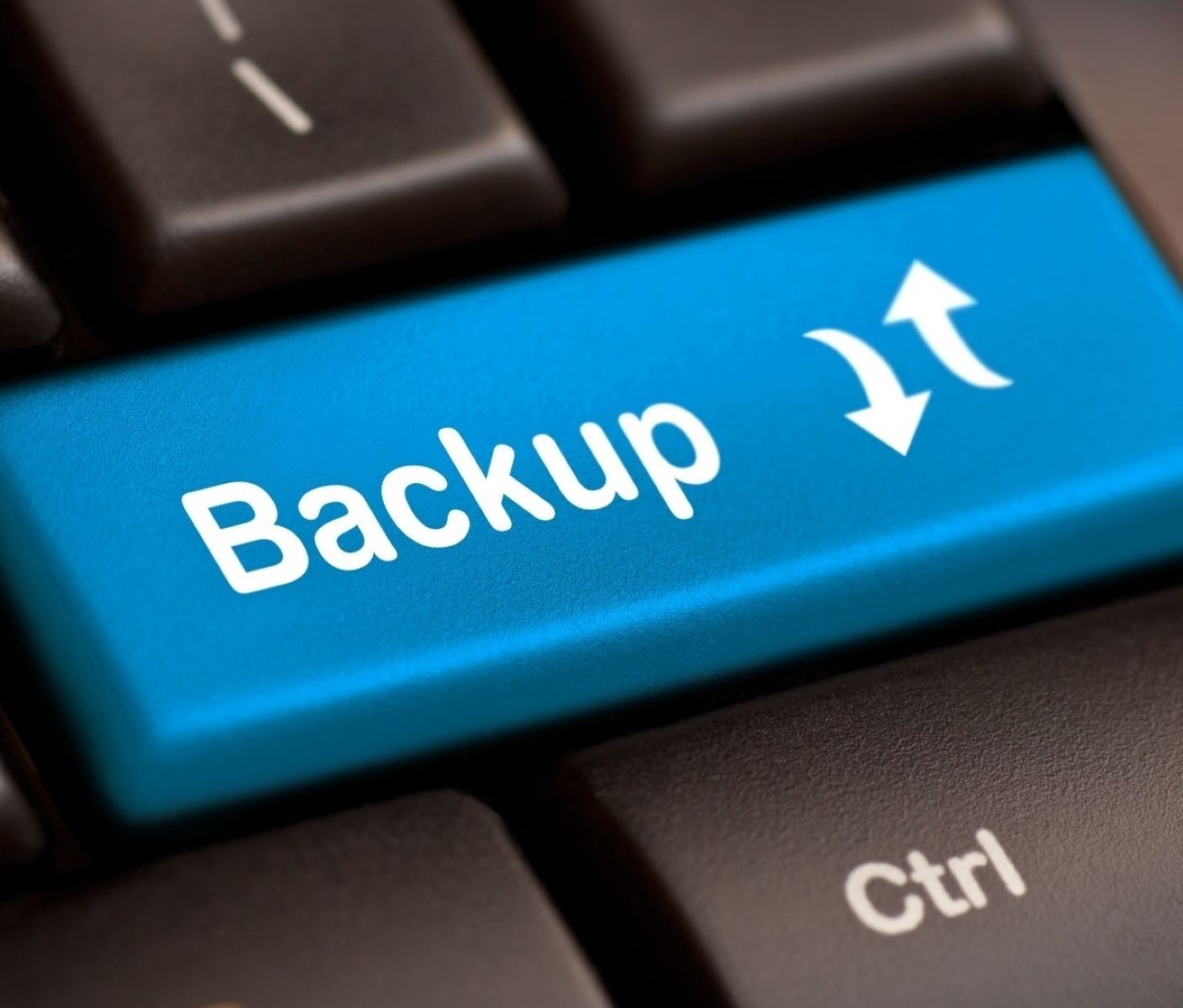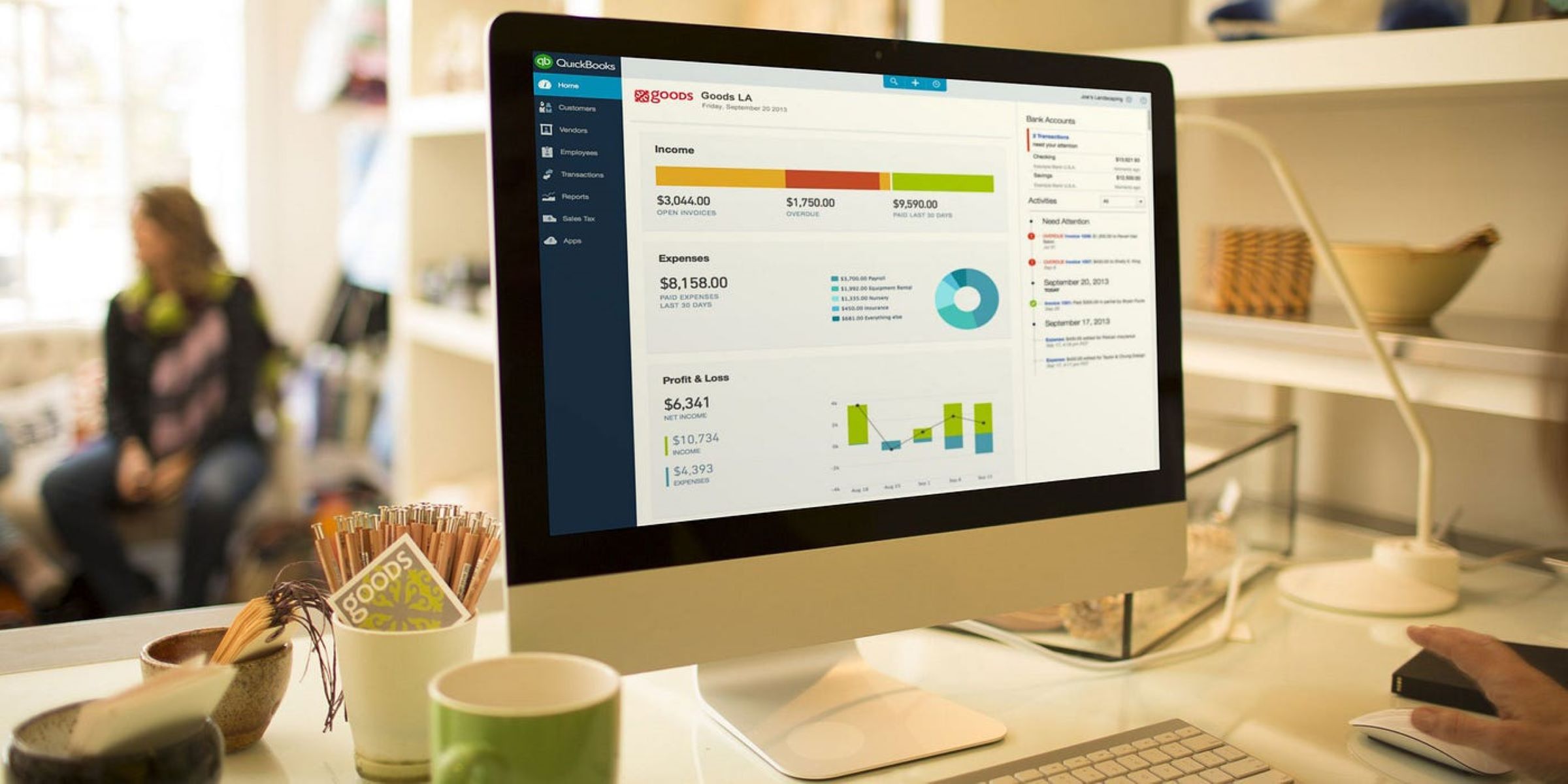Introduction
Backing up your QuickBooks Online data files is crucial for ensuring the security and availability of your financial information. While the QuickBooks Online platform itself offers some level of data protection, it is always recommended to create additional backups in case of unforeseen events such as system failures, accidental deletions, or cybersecurity threats.
In this article, we will explore different options for backing up your QuickBooks Online data files. We will discuss a range of solutions, including cloud storage, local storage, external hard drives, network-attached storage (NAS), and online backup services. Each option has its own advantages and considerations, so it’s important to understand which approach suits your specific needs and preferences.
Before diving into the various backup methods, it’s essential to highlight why backup strategies are crucial. QuickBooks Online stores all your financial data in the cloud, allowing you to access it anytime, anywhere. However, relying on a single point of storage can be risky. Technical glitches, hacking attempts, or natural disasters may result in data loss, potentially causing severe disruptions to your business operations.
By implementing a comprehensive backup strategy, you can protect your valuable financial data and ensure business continuity. A backup not only enables you to recover from data loss incidents but also provides peace of mind knowing that your critical information is securely stored in multiple locations.
In the following sections, we will explore different options for backing up your QuickBooks Online data files. Whether you prefer the convenience of cloud storage, the reliability of local backups, or the added security of external devices, there is a solution that suits your needs. Let’s dive in and explore your backup options.
Cloud Storage
Cloud storage is a popular and convenient option for backing up QuickBooks Online data files. It allows you to store your data securely on remote servers, accessible from any internet-connected device. Here are some key benefits and considerations of using cloud storage for your QuickBooks Online backups:
- Accessibility: With cloud storage, you can access your backups from anywhere, at any time. This flexibility is particularly useful for businesses with multiple locations or remote employees.
- Redundancy: Cloud storage providers typically have robust backup systems in place, including data replication across multiple servers. This redundancy ensures that even if one server fails, your data remains safe and accessible.
- Scalability: Cloud storage offers scalability, allowing you to increase or decrease your storage capacity based on your needs. As your business grows, you can easily expand your backup storage without the need for physical infrastructure.
- Automated backups: Many cloud storage providers offer automatic backup features, where your QuickBooks Online data files are backed up regularly without manual intervention. This minimizes the risk of forgetting to perform backups and ensures your data is always protected.
Despite the numerous benefits, it’s important to consider a few factors when using cloud storage for QuickBooks Online backups:
- Security: While cloud storage providers implement robust security measures, it’s essential to choose a reputable provider that employs encryption and other security protocols to protect your data from unauthorized access.
- Internet connectivity: Since cloud storage relies on internet connectivity, it’s important to ensure a reliable and stable internet connection for seamless backup and restore operations.
- Costs: Cloud storage services often have pricing plans based on storage capacity and usage. It’s important to consider the cost implications, especially if you have large data files or require frequent backups.
Popular cloud storage solutions for QuickBooks Online backups include Dropbox, Google Drive, and Microsoft OneDrive. These platforms offer user-friendly interfaces, mobile apps, and integration options with QuickBooks Online for seamless backup and file management.
When using cloud storage for QuickBooks Online backups, it’s important to follow best practices such as enabling two-factor authentication, regularly reviewing and managing access permissions, and regularly testing your backup restoration process to ensure data integrity.
Now that we’ve explored the benefits and considerations of cloud storage for QuickBooks Online backups, let’s move on to the next section and discuss another backup option: local storage.
Local Storage
Local storage is a traditional method of backing up QuickBooks Online data files that involves saving them to physical devices or media located on-premises. Let’s take a closer look at the benefits and considerations of using local storage for your backup needs:
- Control: With local storage, you have complete control over your backup process and where your data is stored. This can be especially appealing for businesses that prioritize physical possession of their backup media.
- No reliance on the internet: Unlike cloud storage, local storage does not depend on an internet connection. This can be advantageous when dealing with limited or unreliable internet connectivity.
- Cost-effectiveness: Local storage provides a more cost-effective solution for businesses that have limited data storage needs or want to avoid ongoing subscription fees associated with cloud storage providers.
- Easy access: Locally stored backups are readily accessible, as you can connect the storage devices directly to your computer or network. This enables faster backup operations and quicker restore processes.
However, there are also a few considerations to keep in mind when using local storage for QuickBooks Online backups:
- Data security: While local storage gives you physical control over your backups, it’s important to implement security measures to protect your backup media from theft, damage, or unauthorized access. This may include using encryption or storing backups in a secure location.
- Redundancy and disaster recovery: It’s essential to have multiple copies of your backups and store them in different physical locations. This ensures that in case of a disaster, such as a fire or flood, your backups can be recovered.
- Maintenance and monitoring: Local storage requires regular maintenance to ensure the integrity of the backup media and to monitor for any potential issues, such as disk failures or corruption.
Some common methods of local storage for QuickBooks Online backups include using external hard drives, network-attached storage (NAS), or even dedicated backup servers. These solutions provide flexibility, scalability, and the ability to customize your backup infrastructure according to your specific needs.
When utilizing local storage for QuickBooks Online backups, it’s important to establish a backup schedule and stick to it. Regularly test the restoration process to ensure your backups are valid and can be easily recovered when needed.
Now that we’ve discussed the benefits and considerations of local storage for QuickBooks Online backups, let’s move on to the next section and explore another backup option: external hard drives.
External Hard Drives
External hard drives are a popular choice for backing up QuickBooks Online data files, providing a portable and secure storage solution. Let’s explore the benefits and considerations of using external hard drives for your backup needs:
- Portability: External hard drives offer the advantage of portability, allowing you to easily carry your backups with you or store them in a secure off-site location.
- Large storage capacity: External hard drives come in various sizes, ranging from a few hundred gigabytes to multiple terabytes. This provides ample space to store all your QuickBooks Online data files, including attachments and transaction histories.
- Offline accessibility: External hard drives do not require an internet connection to access your backups. This can be beneficial in situations where internet access is limited or when you prefer to keep your backups offline for added security.
- Cost-effectiveness: External hard drives offer a cost-effective backup solution, especially for businesses that have large amounts of data to store and want to avoid ongoing subscription fees associated with cloud storage.
While external hard drives offer various advantages, it’s important to consider the following factors when using them for QuickBooks Online backups:
- Physical damage or loss: External hard drives are susceptible to physical damage or theft. It’s crucial to store them in a secure location when not in use to protect your backups from potential loss or unauthorized access.
- Regular backups: To ensure data integrity, it’s essential to establish a regular backup schedule and adhere to it. Failing to perform consistent backups may result in data loss and the inability to recover recent changes.
- Data encryption: To enhance data security, consider encrypting your backups stored on external hard drives. This adds an extra layer of protection in case the drive falls into the wrong hands.
When using external hard drives for QuickBooks Online backups, it’s recommended to have multiple drives or create multiple copies of your backups. This redundancy provides additional protection against drive failures or other hardware issues.
Additionally, it’s vital to store your external hard drives in a cool and dry environment to prevent heat damage or exposure to moisture. Regularly test the restoration process to ensure your backups are valid and can be easily recovered when needed.
Now that we’ve explored the benefits and considerations of using external hard drives for QuickBooks Online backups, let’s move on to the next section and discuss another backup option: network-attached storage (NAS).
Network Attached Storage (NAS)
Network Attached Storage (NAS) is a robust and efficient method for backing up QuickBooks Online data files. It involves utilizing a dedicated storage device connected to your network, offering centralized backup and storage capabilities. Let’s explore the benefits and considerations of using NAS for your backup needs:
- Centralized storage: NAS provides a centralized storage solution for your QuickBooks Online backups, allowing multiple devices on your network to access and store data simultaneously. This makes it convenient for businesses with multiple users or departments.
- Scalability: NAS systems often offer the flexibility to expand storage capacity by adding additional hard drives or upgrading existing drives. This scalability ensures that you can accommodate the growth of your QuickBooks data without any hassle.
- Data protection: NAS devices typically come equipped with various data protection features, such as RAID configurations. These features provide redundancy and ensure data integrity in the event of a hard drive failure.
- Access control: NAS devices offer advanced access control mechanisms, allowing you to define user permissions and restrict access to authorized personnel. This adds an extra layer of security to your QuickBooks Online backups.
While NAS systems have numerous advantages, it’s important to consider a few factors when using them for QuickBooks Online backups:
- Initial setup and configuration: Setting up a NAS system may require some technical expertise and initial configuration. It’s essential to follow the manufacturer’s instructions or seek professional assistance to ensure the system is properly set up.
- Reliability and maintenance: NAS devices require regular maintenance, such as firmware updates and disk health monitoring. It’s crucial to implement a maintenance schedule and monitor the system’s performance to ensure optimal functionality.
- Backup verification: Regularly verify the integrity of your backups stored on the NAS system to ensure that in case of a data loss event, you can successfully restore your QuickBooks Online files without any issues.
NAS devices are available in various capacities and configurations to suit different business needs. They offer features like RAID 1, RAID 5, or RAID 10 for data protection and redundancy.
It’s recommended to choose a NAS solution from reputable manufacturers, such as Synology, QNAP, or Western Digital, and ensure that the device is compatible with your network infrastructure and operating system.
Now that we’ve discussed the benefits and considerations of using network-attached storage (NAS) for QuickBooks Online backups, let’s move on to explore another backup option: online backup services.
Online Backup Services
Online backup services provide a secure and convenient solution for backing up your QuickBooks Online data files. These services offer cloud-based storage and backup solutions specifically designed to protect your important business data. Let’s delve into the benefits and considerations of using online backup services:
- Automated backups: Online backup services often offer automated backup schedules, ensuring that your QuickBooks Online data files are regularly backed up without any manual intervention. This eliminates the risk of forgetting to perform backups and provides peace of mind knowing that your data is constantly protected.
- Redundancy: Reputable online backup services employ robust data replication techniques to ensure data redundancy across multiple servers or data centers. This redundancy ensures that even if one server or location experiences issues, your backups remain safe and accessible.
- Security: Online backup services prioritize data security by implementing strong encryption protocols, such as SSL/TLS and AES-256 encryption. This protects your QuickBooks Online data files from unauthorized access during transit and storage.
- Scalability: Online backup services offer scalable storage options, allowing you to adjust your backup capacity as your business grows or your data storage needs change. This flexibility ensures that you have sufficient storage space to accommodate your QuickBooks data.
While online backup services offer numerous benefits, there are a few considerations to keep in mind:
- Internet bandwidth: Uploading your QuickBooks Online data files to an online backup service requires a stable and reliable internet connection. If you have a large volume of data to back up, it’s important to consider the upload speed and any potential impact on your internet bandwidth.
- Costs: Online backup services typically have pricing plans based on storage capacity and usage. It’s essential to evaluate the costs associated with the service, especially if you have significant data storage needs or require frequent backups.
- Data retrieval: When utilizing online backup services, you may encounter limitations regarding the speed at which you can retrieve your backups. It’s important to understand the service provider’s retrieval processes and any associated costs or limitations.
Well-known online backup services like Carbonite, Backblaze, and IDrive provide user-friendly interfaces, automatic backup options, and seamless integration with QuickBooks Online. They ensure that your QuickBooks data is protected and easily recoverable in case of any data loss incidents.
Remember to select an online backup service that aligns with your security requirements and complies with industry-standard data protection regulations, such as GDPR or HIPAA, if applicable to your business.
Now that we’ve explored the benefits and considerations of using online backup services for QuickBooks Online data files, let’s move on to the next section to wrap up our discussion.
Conclusion
Backing up your QuickBooks Online data files is of utmost importance to safeguard your financial information and ensure business continuity. By exploring various backup options, you can find the most suitable solution that meets your needs and provides peace of mind.
In this article, we discussed several backup methods, including cloud storage, local storage, external hard drives, network-attached storage (NAS), and online backup services. Each option offers unique benefits and considerations, allowing you to choose the approach that aligns with your preferences and requirements.
Cloud storage provides accessibility, redundancy, and scalability, making it a popular choice for businesses that prioritize convenience and flexibility. Local storage, on the other hand, offers control, cost-effectiveness, and offline accessibility, appealing to those who prefer physical possession of their backups. External hard drives provide portability, large storage capacity, and cost-effectiveness, while NAS systems offer centralized storage, scalability, and data protection. Online backup services automate backups, ensure redundancy and security, and offer scalability options.
When deciding on the best backup method for your QuickBooks Online data files, consider factors such as data security, accessibility, cost, and ease of use. It’s crucial to establish a regular backup schedule, test your restoration process, and keep multiple copies of your backups in separate physical locations for added protection.
Remember, regardless of the backup method you choose, regularly reviewing and updating your backup strategy is essential to adapt to changes in your business and technology landscape.
By implementing a comprehensive backup strategy, you can safeguard your QuickBooks Online data files, protect your business from data loss incidents, and ensure the uninterrupted operation of your financial processes.
Now that you are aware of the available backup options, it’s time to evaluate your business needs and choose the most suitable method to protect your QuickBooks Online data files.

























